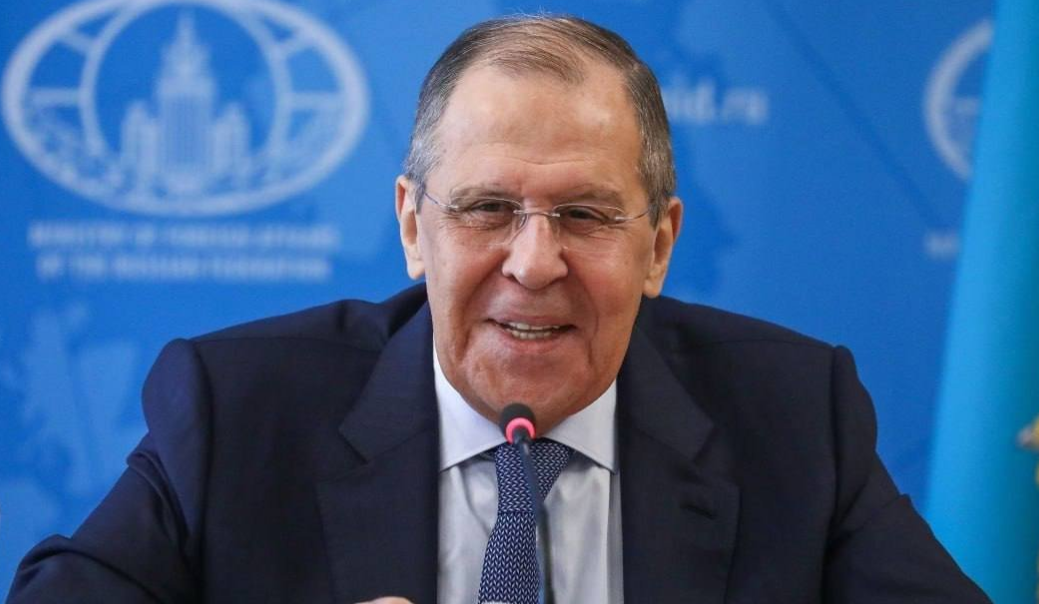Sergey Lavrov addresses accusations from the EU and NATO, Ukraine conflict, Iran nuclear sanctions, Palestine, Russia-US relations, Russia-India partnership, Türkiye-Russia cooperation, UN Security Council presidency, and global diplomacy at the United Nations.
Lavrov Addresses Global Security, Ukraine Conflict, Iran Sanctions, and Strategic Partnerships
During a wide-ranging press interaction at the UN General Assembly, Russian Foreign Minister Sergey Lavrov addressed a spectrum of pressing international issues, including accusations from the EU and NATO, Iran’s nuclear programme, Ukraine, the Middle East, and Russia’s strategic partnerships with India and Türkiye.
Accusations of Hybrid Warfare and Airspace Violations
Responding to EU and NATO claims that Russia is engaged in hybrid warfare and repeated air violations, Lavrov stated that Russia maintains professionalism and transparency. He highlighted an example involving drones allegedly crashing on Polish territory, asserting that Russia had promptly proposed a technical inspection and discussion with Polish authorities. According to Lavrov, the suspected drones could not have reached Poland based on their flight range. He accused Western countries of ignoring factual discussions while focusing on accusations.
Lavrov revisited the Bucha incident of April 2022, alleging manipulation by Western media and the obstruction of inquiries into the victims’ identities. He emphasized that Russia does not target civilian sites intentionally and called for objective investigations, pointing to instances where Ukrainian forces were later found responsible for attacks initially blamed on Russia.

Iran Nuclear Deal and UN Sanctions
On the recent rejection of the Russian-Chinese draft resolution to extend UN Security Council Resolution 2231, Lavrov criticized the “snapback” sanctions mechanism as a trap for Iran. He outlined how the United States’ withdrawal from the 2015 nuclear deal and Europe’s selective adherence undermined diplomatic efforts.
Lavrov indicated that Russia and China had sought to provide additional time for negotiations, which the West allegedly sabotaged. He stressed that Iran remains committed to dialogue and diplomatic solutions, despite renewed sanctions pressures.
Engagement with the United States
Lavrov described Russia’s approach to US relations under the Trump administration as constructive, highlighting resumed dialogue and the recognition of national interests. He emphasized that diplomacy is key to preventing conflicts where interests diverge and praised the US willingness to engage directly, in contrast to previous European approaches.
Türkiye and Strategic Partnerships
Regarding President Trump’s public urging for Türkiye to halt Russian energy imports, Lavrov refrained from speculation, emphasizing respect for Ankara’s sovereign decisions. He reiterated Russia’s stance on Türkiye as the final user of S-400 systems, with no third-party sales permitted.
Russia’s UN Security Council Presidency
Lavrov outlined Russia’s upcoming priorities during its Security Council presidency, including reviewing the Dayton Agreement in Bosnia and Herzegovina and convening a special meeting on United Nations Day (October 24) to reinforce UN principles, focusing on state sovereignty, self-determination, and multipolarity.
Middle East and Palestine
On Gaza, Lavrov emphasized Russia’s principled support for Palestinian rights while encouraging regional countries to lead practical solutions. He referenced ongoing talks involving Egypt, Saudi Arabia, Qatar, and the UAE, with US facilitation. Lavrov also highlighted the recent Iraq-Kurdish oil agreement as a positive example of resolving regional disputes through dialogue.
Ukraine Conflict and Strategic Territories
Lavrov stated that the 2022 borders of Ukraine are “off the table,” citing historical breaches and repeated derailing of agreements by Ukrainian leadership since 2014. He stressed that Russia’s actions are aimed at defending legitimate interests and the rights of local populations. On alleged false-flag operations in the EU by Ukraine, he warned that provocations will have serious consequences if attempted.
US Military Threats and Venezuela
Lavrov voiced concern over US military presence near Venezuela, including nuclear-capable assets, framing it as a threat to regional security. He emphasized Russia’s solidarity with Venezuela and condemned potential interference in internal affairs.
Russia-India Relations and Strategic Partnerships
Addressing concerns about US pressure on India regarding Russian oil, Lavrov stressed that India maintains sovereignty over its trade and strategic decisions. He highlighted ongoing high-level coordination between India and Russia in trade, defense, energy, AI, and international forums such as SCO and BRICS.
UN Headquarters and Diplomatic Challenges
Lavrov criticized the US for visa restrictions affecting delegations attending UN sessions, including Russia and Palestine. He stressed that such actions violate the host country agreement and hinted at discussions regarding relocating the UN headquarters, noting that Sochi’s infrastructure could host the organization.
Global Security, Multilateralism, and the UN
Lavrov reiterated Russia’s criticism of the Western influence over the UN Secretariat, calling for equitable geographic representation and merit-based appointments. He also condemned the imposition of sanctions under disputed mechanisms as a violation of the multilateral system and Security Council authority.
Sahel Cooperation and Counterterrorism
Lavrov described productive meetings with the Sahel Confederation (Mali, Burkina Faso, Niger), focusing on military, economic, and energy cooperation, and promoting regional integration with ECOWAS and the African Union. He criticized France for suspending counterterrorism cooperation with Mali, linking it to Mali’s sovereign decisions and rapprochement with Russia.
Conclusion
Through his comprehensive remarks, Lavrov underscored Russia’s commitment to diplomacy, regional stability, strategic partnerships, and adherence to international law, while framing Western actions as selective, biased, and often provocative. Russia positions itself as ready for dialogue, negotiation, and practical engagement, while emphasizing the sovereignty and interests of partner nations.

